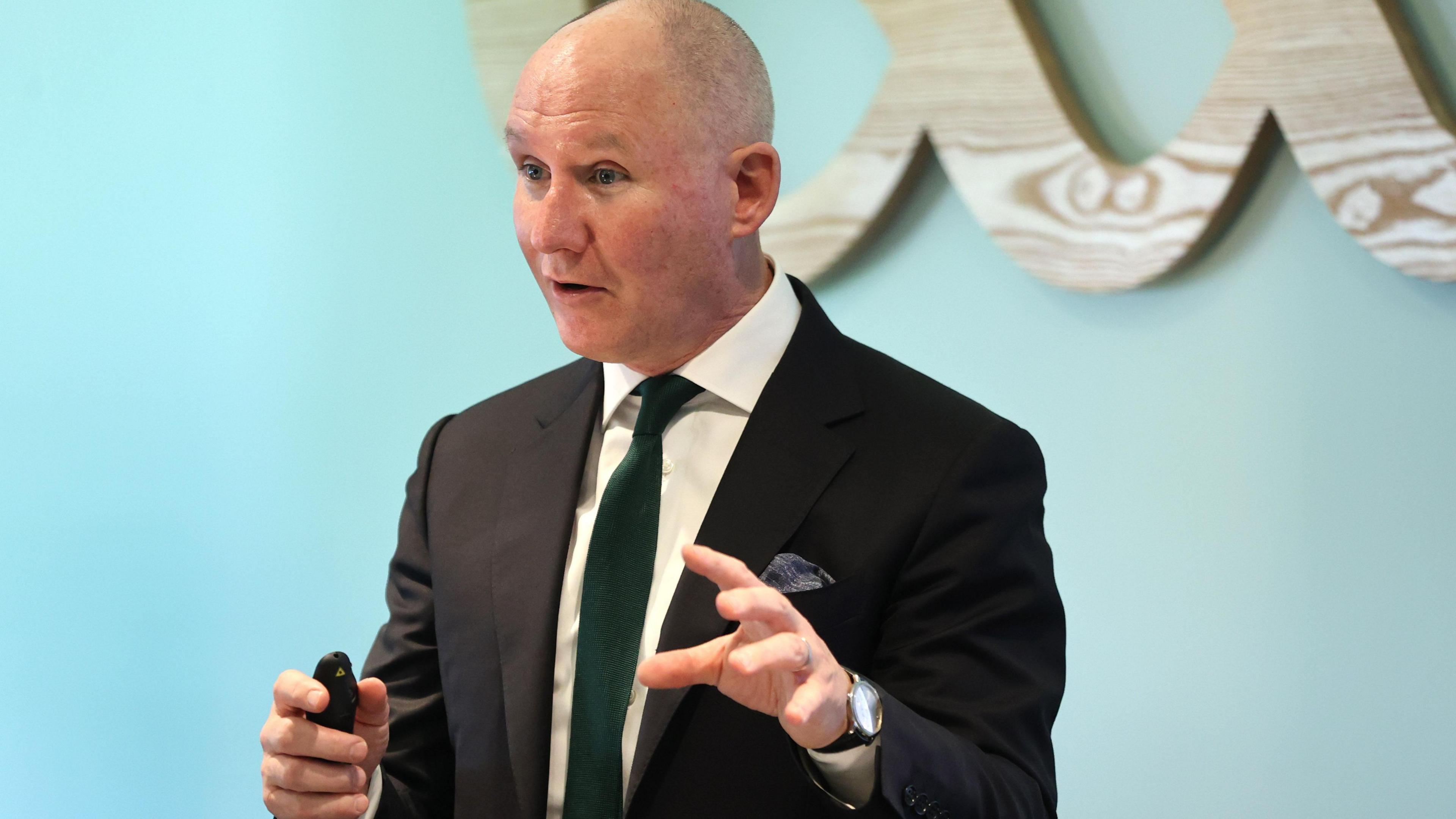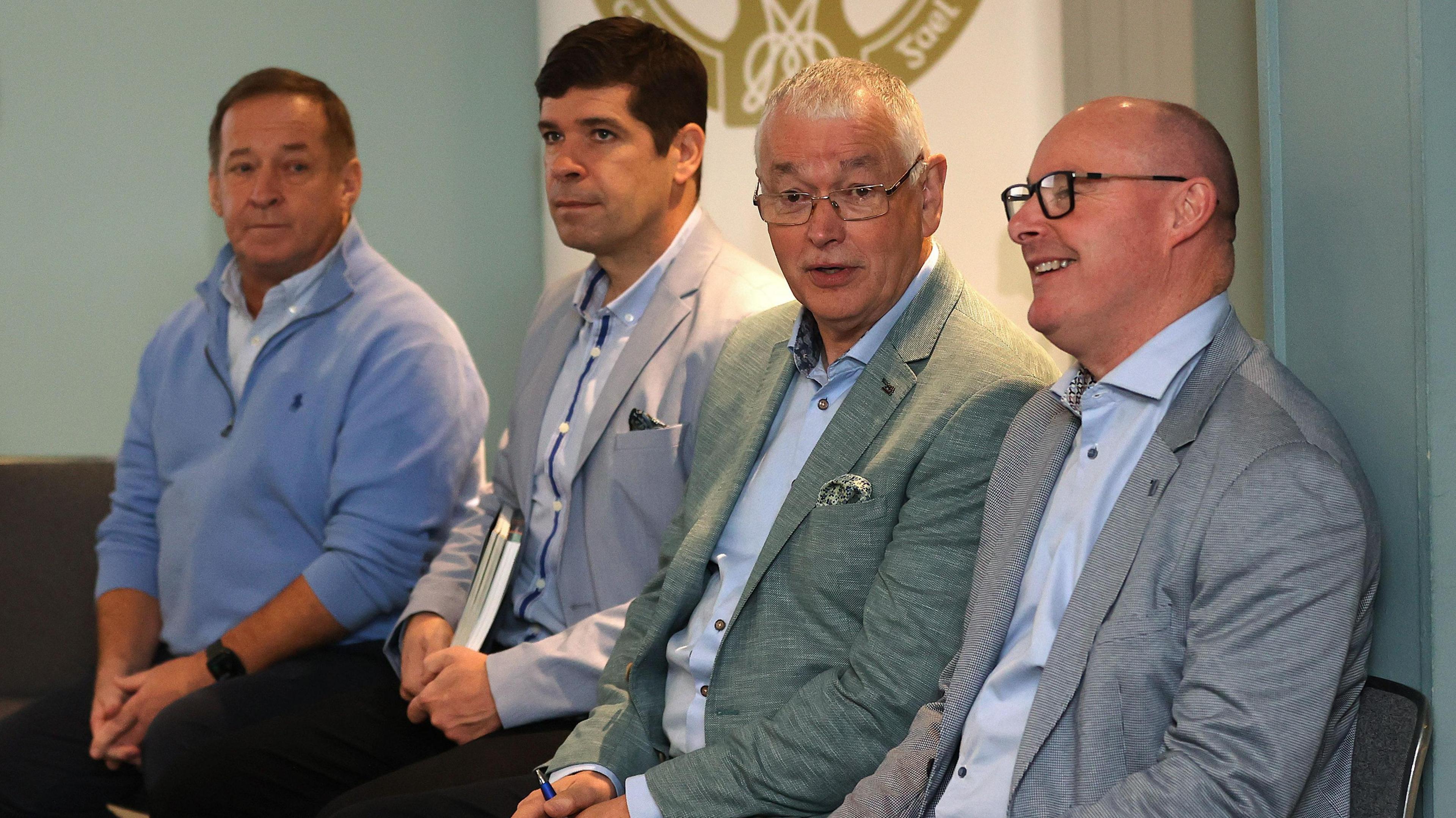'Rule changes designed to speed up gaelic football'

Jim Gavin managed Dublin to six All-Ireland SFC titles
- Published
The GAA's Football Review Committee (FRC) chairman Jim Gavin believes the rule changes which could come into play in 2025 will lead to a quicker game and demand even higher levels of fitness from players.
Changes such as the 'solo and go' - which will allow fouled players to quickly pass or continue without stopping play to take a free - will enhance the game as a spectacle, according to the FRC, which launched its report in Croke Park on Thursday.
It was also confirmed that the 'three-up' rule, where three players must stay up the field, will apply to the halfway line and not the 65-metre line.
The rule changes will be trialled in inter-provincial games in Croke Park next weekend and it is hoped that the changes will drastically reduce the amount of mass defending that has impacted gaelic football in recent years.
The 12-strong FRC members include former Mayo and Clare managers James Horan and Colm Collins, former Kerry boss Eamon Fitzmaurice, new Tyrone manager Malachy O'Rourke and Donegal's 2012 All-Ireland winning captain Michael Murphy.

Members of the Football Review Committee who attended Thursday's launch in Croke Park
Gavin suggested that if the changes lead to the quicker game that is envisioned, the way substitutions are made may have to change.
“We gave a brief to Central Council about six weeks ago and this exact point was brought up that, you know, will we get to a stage where players are cramping up from fatigue?” said former Dublin boss Gavin.
“I said, ‘Well, wouldn’t that be a great complaint, that the game has got so fast that we need to look at solutions to this’.
"One of the solutions we looked at, and it’s in our recommendations, is roll-on, roll-off subs.”
Gavin also confirmed a red flag will be waved for a two-point score kicked from or outside a 40-metre arc, distinguishing it from a green flag for a new four-point goal and white for one point within the 40m arc.
All of these enhancements will be on parade for the first time for the inter-pro games in Croke Park next weekend, in addition to proposals to punish tactical fouls and dissent by moving the ball up by a whopping 50 metres instead of the current 13 metres.
"The game will be faster and require a higher level of fitness," said Collins.
"The ball will be constantly moving. We've tried to eliminate a lot of these unnecessary stoppages."

Michael Murphy captained Donegal to the All-Ireland SFC title in 2012
The FRC have produced a document of over 200 pages that sets out the rationale for the 'core enhancements' they have planned.
Following next week's trial games in Croke Park on Friday and Saturday 18/19 October, it will go before Central Council for initial approval at the end of the month before full approval is sought from Special Congress.
Several 'sandbox' trial games have already taken place and have emboldened Gavin's belief that the changes will improve the state of the modern game.
"The data we’re seeing is that high-speed running is through the roof," he said.
"We’ve seen a lot more kick-passing. The amount of shots we’ve had on goal, it’s beyond anything I’ve seen recently and the games I’ve been involved in as manager.
"The amount of attacks in a game, defensive play. As a team attacks, another defends so all those have increased dramatically."
The FRC want the rule changes to be in place for all competitions, club and county, in 2025.